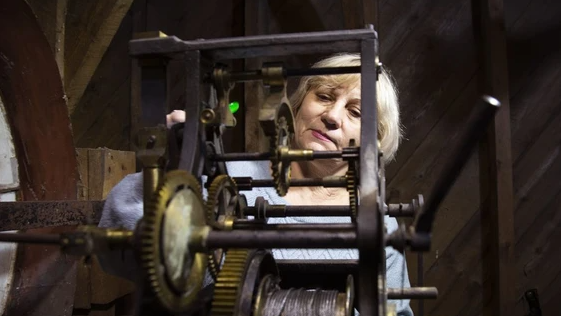No one commenting on your playlist? You’re cathartic music experience is showing :)
Centrist, progressive, radical optimist. Geophysicist, R&D, Planetary Scientist and general nerd in Winnipeg, Canada.
troyunrau.ca (personal)
lithogen.ca (business)
- 33 Posts
- 316 Comments
Fourth panel. AI trained on all the above, floods it all with generated content rendering the signal-to-noise ratio too terrible to tolerate, even for corporations.

 5·3 months ago
5·3 months agoWe called it “Beetle Bump” but same thing.
After the release of the redesign, it sort of stopped. Only really made sense for the classic version.
Just make it ridiculous. Like instructions to get an artifact that will resurrect you from a museum in France… Then if it goes off by accident, it is comedy.
Network interruption would cause it to run then. Or an API change. Dangerously causing it to actually run.

 39·3 months ago
39·3 months agoThat reminds me…
In circa 1995 I was running a dial upBBS service – as a teenager. So if course, it was full of bootlegged video games and such, and people would dial in, download a game, log off.
Someone uploaded Descent or something like that. But they had put "deltree /y C:" or similar into a batch file, used a BAT2COM converter program, then a COM2EXE program, then padded the file size to approximately the right size with random crap (probably just using APPEND)… And uploaded it. Well, fortunately for the rest of my users, I say the game and said: oh, that’s neat, I should try it and copied it to another computer over my internal network and launched it. It started deleting files right away and I hit CTRL-C to abort. I lost only a few dozen files.
Banned the user, deleted the package. Got lucky.
Balrog could be the hot one in the first row too ;)

 6·3 months ago
6·3 months agoI still go to Reddit for some communities that don’t have critical mass on Lemmy. Sure you can talk about programming or Linux here, but the more niche ones (like specific mods for specific games) are entirely absent.
But when I want to post something or create content, it goes here.

 2·3 months ago
2·3 months agoSo, this just popped. https://www.livescience.com/space/cosmology/james-webb-telescope-confirms-there-is-something-seriously-wrong-with-our-understanding-of-the-universe which may be relevant. Haven’t read it yet.

 11·4 months ago
11·4 months agoThe Hubble constant is an interesting one – it isn’t actually a constant, but if you reframe it as a partial differential equation, the law is very predictable. https://en.wikipedia.org/wiki/Hubble’s_law#Time-dependence_of_Hubble_parameter – so in many ways, it’s just a misnamed phenomenon, and shouldn’t be called a constant at all.
Any place in the universe beyond which we’ve directly sent probes – is assumed to be like those parts we already know. Part of the reason we make this assumption is that: main sequence stars appear to behave identically across vast reaches of space and time. Thus we assume that physics hasn’t changed significantly (at least within the period of time where main sequence stars exist). Because if the physics was different, the stars would be different (spectra, lifecycles, etc.).
I’ll present a tickler I learned in cosmology decades ago, for hand-waving.
Run the big bang backwards – imagine all of the matter and energy of the universe collapsing to a single point. Which point is at the centre? They all are. Run time forwards again and all the points expand outwards from each other, but which point was at the centre that you can use to reference the centre of the universe against? They all were. Thus, I am the centre of the universe. And so are you ;)
This made my brain melt until I learned to visualize this using lower dimensional surfaces (like Riemann spheres). Imagine a beach ball being inflated. It is a two dimensional surface. You’re an ant on the beach ball and all the other points are getting further away, but it’s happening in a uniform way. (The Hubble parameter is something like the rate at which air is added to the beach ball.) Now, run this beach ball backwards through time – it shrinks and shrinks until it becomes a single point, where all points overlap – every point is the centre of the beach ball universe. Run this forward in time again and ask: which point on the surface of the beach ball is the centre of this two-dimensional universe? And the answer is “all of them” and the universe should be uniform in its expansion properties.
It might not be, but that’s the idea.

 20·4 months ago
20·4 months agoAnyone who has read the books want to chime in? I read the books and they had a “painting in a museum” type quality to them, where each chapter was a well described static scene. Fun concepts (in particular, the Dark Forest concept), but really dry prose…
I’ve met the devs in person. They keep turning down literal suitcases full of cash from people who want to bundle adware and crap in one of the most popular programs ever. Don’t assume VLC is going down that road – they’ve stuck to their ethics for decades.
I mean, python has pickle and people use that to store config. It’s a weird practice, and totally unsafe, but it works well enough. This wouldn’t be that different.
Yeah, this is an interesting element. Historically, allowing all members a veto, while also having no way to expel a member, means that any such institution is liable to outside meddling. The classic example is the https://en.wikipedia.org/wiki/Liberum_veto – in the Polish Lithuanian Commonwealth, any noble could veto anything. So all it took was buying a few nobles and it shattered.

 2·4 months ago
2·4 months agoWater usage is also problematic. But that’s another story. It’s a multi-parameter optimization problem, but different people weight parameters differently.

 10·4 months ago
10·4 months agoHowever, some UA crops (for example, tomatoes) and sites (for example, 25% of individually managed gardens) outperform conventional agriculture. These exceptions suggest that UA practitioners can reduce their climate impacts by cultivating crops that are typically greenhouse-grown or air-freighted, maintaining UA sites for many years, and leveraging circularity (waste as inputs).
Tomatos it is then ;)
It’s really hard to compete with the efficiency that economies of scale provide. So this result isn’t unexpected.
It doesn’t however negate the other positive impacts of urban gardening – in particular, the impacts on the people doing the gardening (everything from psychology, vitamin D, immune system benefits to playing in the dirt, etc.).

 33·4 months ago
33·4 months agoKDE for years had a clock option called “fuzzy clock” where you could set the granularity of time, either in 5, 10, 15, 20, 30, or 60 minute resolution. So it would just say “five to six” or whatever in words. It was designed to keep you from clock watching while working. Not sure if it exists anymore :)


















There are many time-loop stories in speculative fiction. Hell, there’s like a thousand episodes of sci fi TV with this premise.
But if you’re looking for a good one, try Hyperion (and Fall of Hyperion). The first book can standalone, but the second book gives you a more satisfying answer to your question. It is told in a Canterbury Tales style, with multiple converging retrospectives. But the principle antagonist is time itself. Very fun read.